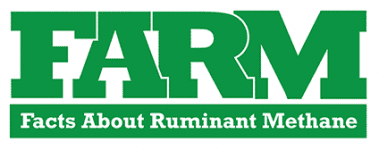Facts About Ruminant Methane (FARM)
What He Waka Eke Noa has got wrong
PART 1
He Waka Eke Noa (HWEN ) is a proposed pricing scheme for livestock emissions.
This is a four-part series explaining the mistakes it makes and what it needs to do to fix these.
- Part 1 HWEN misunderstands the science of methane in particular what net zero methane means
- Part 2 HWEN focuses on the premise that farmers have to pay for methane emissions without examining alternatives
- Part 3 HWEN does not allow for the IPCC scenario the Government adopted to set its emission reduction targets which does not require nitrous oxide to reduce in the manner HWEN does
- Part 4 HWEN promotes its pricing scheme as better for farmers than the ETS and that either the ETS or HWEN are needed to satisfy overseas markets. HWEN’s conclusions are questionable and we examine these.
Part 1: The Science
Net Zero Methane
Even though the farming industry and the Government have now finally come on board with what we have been saying for years and have adopted a split gas approach to climate policy, it does not appear that the implications of what a split gas approach requires are fully understood.
The statement in the HWEN document that methane does not need to reduce to zero is an example of this.
My question is why not? Emissions must be at net zero to have no further impact on global temperatures after all.
The Government’s position on the warming impact of methane is expressed in the Ministry for the Environment Zero Carbon consultation document which states, “stabilising methane would mean our domestic emissions of methane would not contribute to any further increase in global temperatures”.
The Government is saying is that when our methane emissions are stable, they are not contributing to any further increase in temperatures and to me that means they must be at net zero. The test for net zero must be that emissions are not causing any increase in the atmospheric concentration of that greenhouse gas. What other test could there be?
What has happened here is that while the split gas approach has been adopted, the implications have not been fully understood and HWEN has defined net zero methane in terms of its CO2 equivalent. Under a split gas approach this should not happen.
The reason for adopting a split gas approach is that the CO2 equivalent system is a joke and so it is just ridiculous for HWEN to continue to use it. Under a split gas approach methane must be treated separately to CO2 and it can only be methane emissions and methane removals that are considered in the matter.
We thought that once the science of methane had been accepted the battle would be over, but the Government continues to hold inconsistent and non-scientific views which mean that it is not. The Government has said clearly that stable methane emissions do not contribute to any further increase in global temperatures, but its official position is that methane is not at net zero unless enough trees are planted to suck up all the imaginary carbon these methane emissions make when they are quantified using the non sensical CO2 equivalent system. HWEN is simply following the Government line on this without thinking.
The Climate Commission has made the same mistake in its report Low Emissions Future. It claims to be using a split gas approach but while its report quantifies methane as methane rather than CO2e, its concepts are all CO2e driven. The report shows the Commission is out of its depth in many ways in my view and like HWEN it fails to understand what a split gas approach really means. This means that the basic principles and premises that HWEN, the Government and the Climate Commission are working under are flawed.
The CO2 equivalent system is a scientific joke and the Government’s and HWEN’s definition of net zero methane is as well.
The treatment of methane emissions by Government adopting the nonsensical CO2e system has been a disaster and HWEN is an opportunity to get it right. I am afraid it does not do that for a number of reasons including it is still using the CO2 equivalent system to define net zero.
What is needed is for HWEN, the Government and the Climate Commission to understand the science of a split gas approach. If nothing else, they should be able to define what it is that net zero methane means under a split gas approach, and importantly define where ruminant methane emissions are today in relation to net zero.
To FARM it is clear that the Government and the Climate Commission’s stated position on the impact of methane on warming means that methane emissions when stable are at net zero and are having no impact on global temperatures.
If HWEN is to boast that it is adopting a split gas approach it actually needs to adopt it properly and define net zero methane under a split gas approach. Any scientists involved with HWEN need to acknowledge their mistake and put it right.
